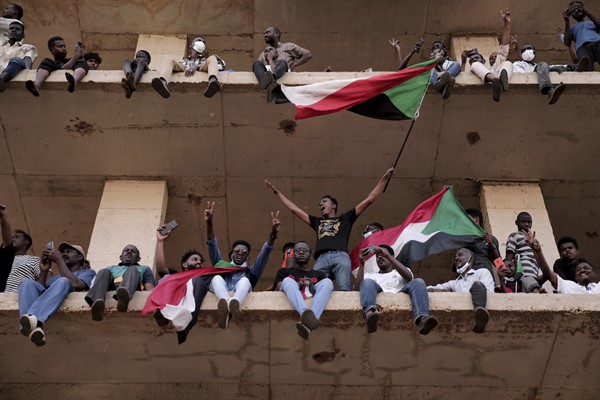Hamdok also attempted to work with the generals after they grudgingly reinstated him in November, but he nevertheless ended up resigning Jan. 3, after a series of massive protests erupted in opposition to the power-sharing deal that brought him back to the prime minister’s office. “I tried as much as I could to avoid our country from sliding into disaster. But despite my efforts to achieve the desired and necessary consensus to give citizens security, peace, justice and to stop bloodshed, that did not happen,” Hamdok said while announcing his resignation, according to The New York Times. Adding to popular anger and distrust, more than 50 civilians have been killed and scores of activists arrested during those recent demonstrations, and the military has allegedly used live ammunition and sexual violence against dissenters as part of its crackdown. In Myanmar, too, the military has lost any trust the public might once have placed in it. The junta has cracked down violently on its opponents, killing at least 1,500 people, arresting almost 12,000 and razing entire villages on mere suspicions they were hosting anti-coup fighters. The conflict has displaced some 340,000 people and dramatically worsened poverty and hunger—yet the junta has blocked access to humanitarian aid. In the leadup to Feb. 1, the anniversary of the coup, authorities arrested dozens of activists and threatened individuals and businesses planning to take part in a “silent strike.” Shunlei told me that the events of the past year had opened her eyes to the true nature of the Myanmar military, an experience she shares with others in the anti-coup movement. Until recently, most in Myanmar would have said that democracy had returned to the country since 2008, when a military-appointed president, Gen. Thein Sein, kicked off a transition to “quasi-civilian” rule. Despite the top-down nature of the process—and despite the fact that the military had designed a system in which it retained significant influence, including veto power over reforms to the constitution and control over security sector policy—this transition was considered a qualified success by Western leaders, including former U.S. President Barack Obama, who lifted U.S. sanctions on Myanmar in its aftermath. Within Myanmar, some pro-democracy leaders advocated working with the military as a partner in the democratization process, and the military was well-respected among the country’s ethnic Burman majority. Shunlei now characterizes those years of “democratization” as another period in which the military kept true power for itself, while using “social propaganda” to win over the public. “We felt like we had opportunities,” she said. “But we were walking on a path that had been paved by the military. The military allowed our freedom, so they controlled our freedom. Once they wanted it back, they could just take it away. That’s what happened in 2021.” At its core, this new narrative rejects any version of “democracy” that includes a degree of military control. And it demands that the Myanmar people be able to decide their own future through a process that is bottom-up, rather than top-down. They would probably share the aspiration expressed by the Sudanese civilian opposition bloc, the Forces for Freedom and Change, to “hear what the Sudanese people believe is the solution to overcome current political impasse” rather than what the military and international mediators say it is. This means the international community may need to rethink its approach to political negotiations when one side supports democracy and the other defies it, as Hudson and Khair argued in the case of Sudan. Over the past year, democratization processes, albeit imperfect ones, have been rolled back in Myanmar, Sudan, Tunisia and, most calamitously, in Afghanistan, to name just a few. And just over a month into 2022, the list of recent coups and coup attempts is already growing longer. If anything is “unrealistic” in this climate, it is the expectation that civilians should come to the table to negotiate in good faith with a party that has repeatedly violated their trust. It is also unrealistic to expect civilians to trust the international community to mediate and defend the agreements it brokers, given its track record in Myanmar, Sudan and elsewhere. As Katia Papagianni documented, transitions based on power-sharing agreements require continuous support of third parties to be effective. Many pro-democracy advocates simply haven’t received that support. The challenge, then, will be for the international community to take pro-democracy activists’ concerns seriously and find ways to win back civilians’ trust. If they can’t, there will likely be more conflict and violence ahead, in Myanmar and Sudan, as well as other countries transitioning to—or back to—democratic rule after coups and conflict.The international community may need to rethink its approach to political negotiations when one side supports democracy and the other defies it.
Prachi Vidwans is an associate editor at World Politics Review. Follow her on Twitter at @PrachiVidwans.

